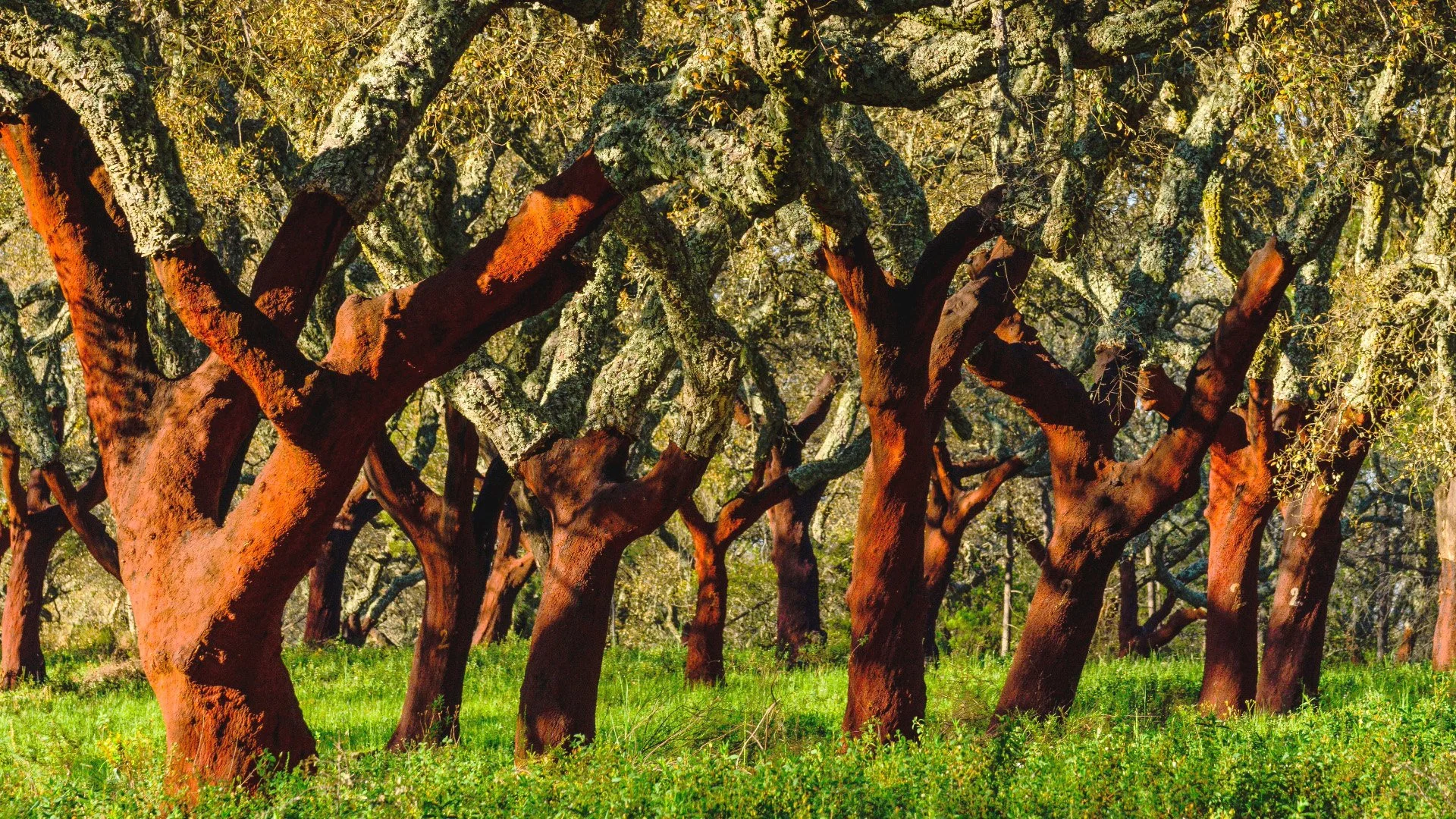Portugal and Cork: A Natural, Economic and Sustainable Heritage
Have you ever stopped to think about where the material for your shoes, your flooring, or even the cork in your wine bottle comes from?
Many of the objects we use every day are made from incredible natural resources – and Portugal is the world leader in one of them: cork.
Cork is a perfect natural material for wine preservation because it allows just the right amount of air to enter the bottle.
In the early 2000s, cork stoppers faced competition from plastic alternatives, but the trend didn’t last long. Demand for cork has since resurged, reaffirming its superiority as a natural and sustainable sealing material.
Global leader in production
Portugal is the world’s largest cork producer, representing half of the global cork production.
With over 85,000 tonnes produced annually, the country leads thanks to its tradition and a unique ecosystem: the montado, an agroforestry system dominated by cork oaks that not only provides the raw material but also protects biodiversity and combats desertification.
Economic relevance
Portuguese cork exports reached a historic high of €1.23 million in 2023.
Overall, the cork sector in Portugal generates a business volume of €2 billion, exports over half of its production, and includes around 700 companies that employ 8,000 people (2022 data), showing its strategic importance to the national economy.
A Renewable and sustainable resource
Cork is harvested every nine years from the bark of cork oak trees through a manual and specialized technique.
The bark is removed in strips, which does not harm the tree and allows it to keep growing and producing cork for decades – on average between 150 to 200 years.
This makes cork a genuinely renewable and sustainable resource.
Environmental and social impact
The cork industry is globally recognized for its sustainability: cork is regularly harvested without damaging the trees and transformed into high-quality products - from bottle stoppers to fashion items, design pieces, insulation, and flooring.
At the same time, cork oak landscapes protect the environment and support the social sustainability of rural areas at risk of desertification, besides helping creating jobs and helping maintain local communities.
Challenges and the future
Despite its success, the cork sector faces some challenges. The 2024 harvest experienced a significant drop in prices, with projections indicating a potential further decline in 2025 to unsustainable levels.
Threats such as the decline of cork oak forests due to diseases and pests, the increased risk of wildfires driven by climate change, urban expansion, and tourism development projects can jeopardize the integrity of the montado, an ecosystem of high environmental value, and put at risk the only economic activity in which Portugal is a global leader.
For this reason, collaborative efforts between government, private sector, academia, and civil society are crucial to ensure the sustainable development of cork oak forests, safeguarding both their ecological and economic future.

